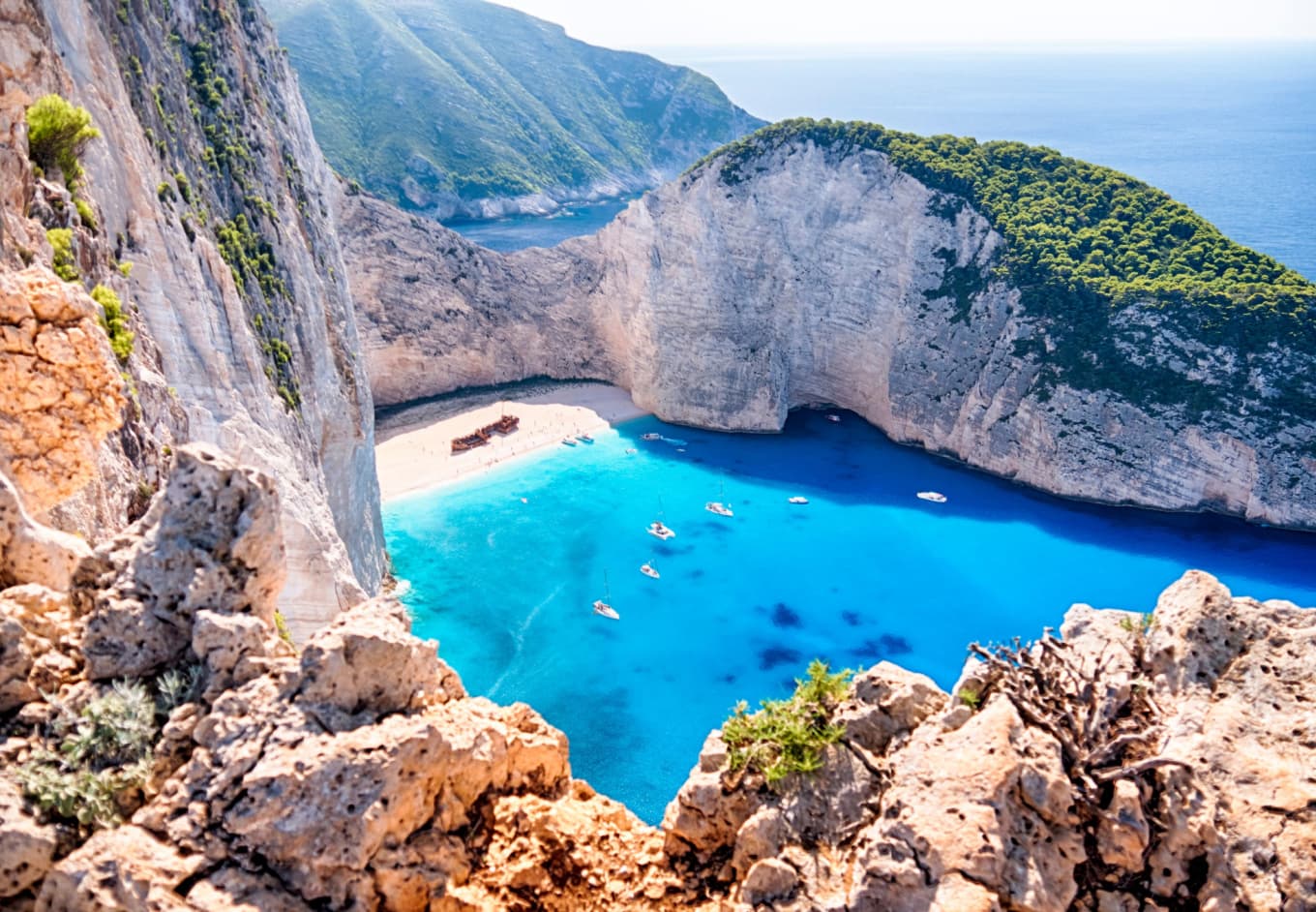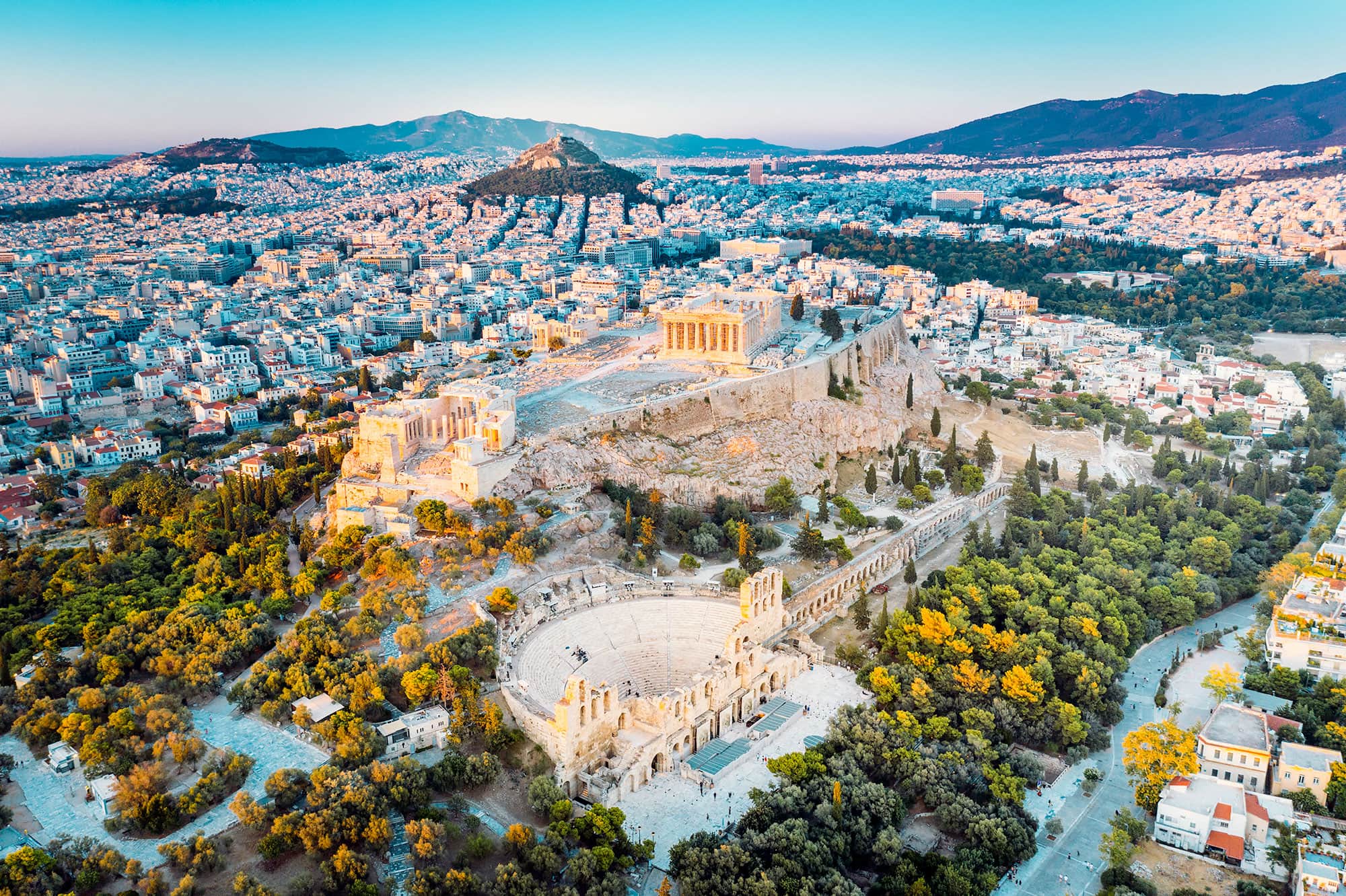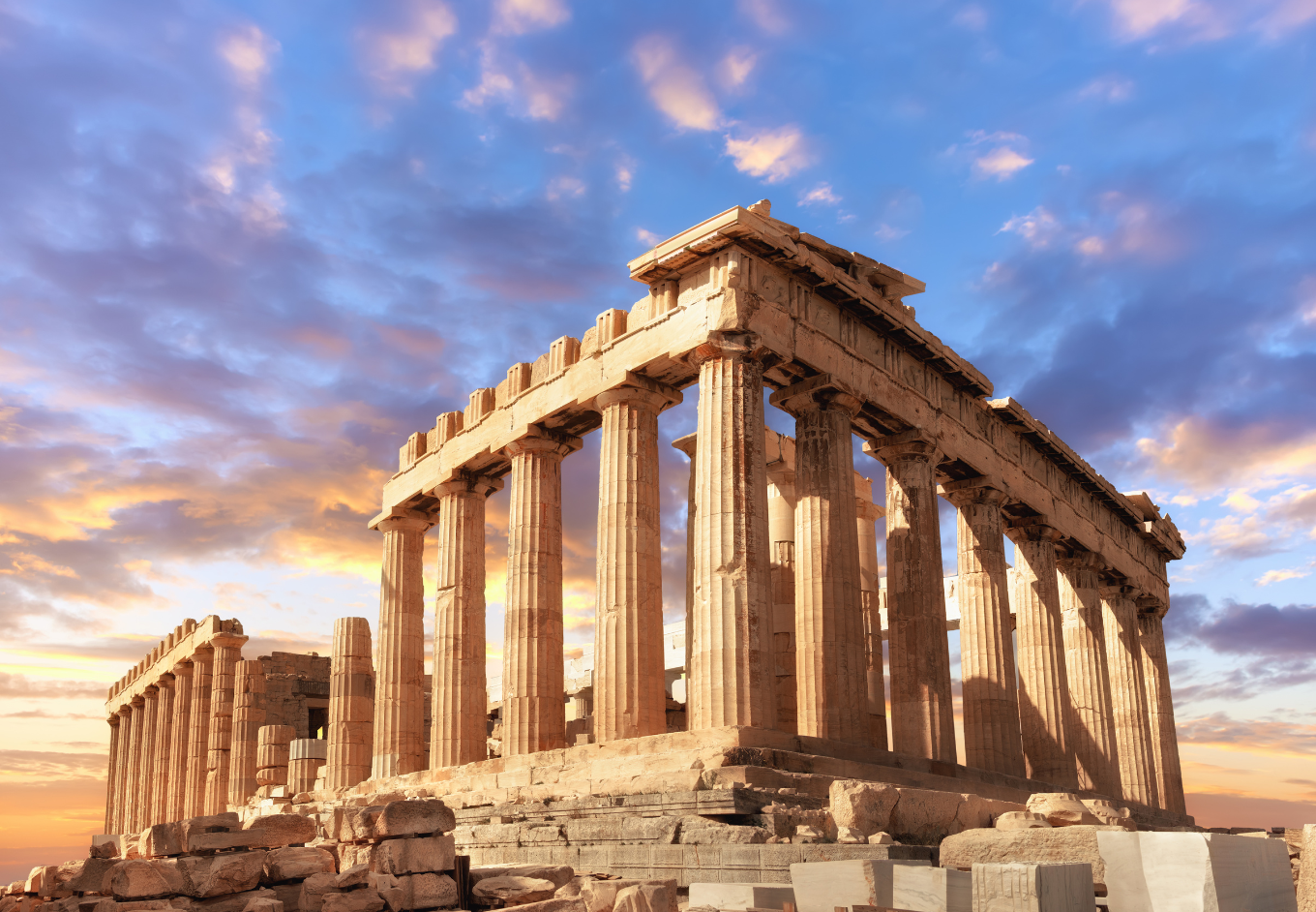Ancient Ties, Modern Challenges: Greece-Iran Relations Explored
The intricate tapestry of international diplomacy often weaves together threads of history, culture, and geopolitical interests, and few relationships exemplify this complexity as profoundly as that between Greece and Iran. These two ancient civilizations, separated by geography but bound by millennia of shared heritage, have navigated a path marked by periods of close collaboration, strategic alignment, and significant challenges. Understanding the nuances of Greece-Iran relations requires delving into their deep historical roots, examining the evolution of their diplomatic ties, and analyzing the contemporary factors that shape their interactions on the global stage.
From formal diplomatic establishment in the early 20th century to navigating the volatile currents of the Cold War and the post-Iranian Revolution era, the relationship has been a dynamic one. This article aims to provide a comprehensive overview of the multifaceted relationship between Greece and Iran, exploring its historical foundations, diplomatic mechanisms, economic potential, and the geopolitical considerations that define its present and future trajectory.
Table of Contents
- The Enduring Legacy: A Millennium of Connection
- Diplomatic Footprints: Embassies and Representation
- Shifting Sands: Post-Revolutionary Dynamics
- Economic Complementarity: A Path to Shared Prosperity
- Navigating Sensitive Waters: Nuclear Program and Human Rights
- Challenges and Tensions: Recent Developments
- Cultural and Educational Bridges: Fostering Deeper Understanding
- The Future Trajectory: Prospects for Bilateral Engagement
The Enduring Legacy: A Millennium of Connection
The relationship between Greece and Iran is not merely a modern construct; it is deeply embedded in the annals of history, stretching back thousands of years. Long before the establishment of formal diplomatic missions, the ancient Greek city-states and the Persian empires engaged in complex interactions, marked by both conflict and profound cultural exchange. From the Persian Wars to the Hellenistic period under Alexander the Great, the two civilizations left indelible marks on each other's art, philosophy, and governance. These ancient ties form a unique backdrop to their contemporary interactions, lending a depth that few other bilateral relationships possess.
The formalization of diplomatic ties between the Kingdom of Greece and the Sublime State of Iran occurred on November 19, 1902. This foundational moment laid the groundwork for a more structured and continuous engagement, transitioning from historical encounters to modern state-to-state relations. This long-standing connection underscores a mutual recognition of their respective historical significance and a desire to foster official channels of communication. The shared great historical ties are often referenced as a bedrock upon which current and future Greece-Iran relations can be built, despite periods of strain.
Diplomatic Footprints: Embassies and Representation
The formal diplomatic relationship between Greece and Iran is concretely manifested through their respective embassies. Greece maintains an embassy in Tehran, while Iran is represented by its embassy in Athens. These diplomatic missions serve as the primary conduits for bilateral communication, negotiation, and the provision of consular services. They are crucial for facilitating everything from trade discussions to cultural exchanges and addressing the needs of citizens traveling or residing in each other's countries.
The presence of these embassies underscores the ongoing commitment of both nations to maintaining open channels of communication, even when broader geopolitical currents might be challenging. For instance, the Greek Foreign Affairs Minister, George Gerapetritis, was briefed on the situation and assistance provided to Greek citizens in Israel and Iran during a recent meeting, highlighting the practical role these missions play in safeguarding their nationals abroad. The consistent operation of these embassies is a testament to the enduring, albeit sometimes strained, nature of Greece-Iran relations.
Shifting Sands: Post-Revolutionary Dynamics
While Greece and Iran shared warm relations under Iran's Pahlavi dynasty, a significant turning point occurred with the Iranian Revolution in 1979. The establishment of the new Islamic Republic government led to a rapid deterioration of these ties. The new Iranian regime began mutually antagonizing the United States, famously labeling it "the Great Satan," and the broader Western bloc, of which Greece was an integral part during the Cold War. This ideological shift fundamentally altered the geopolitical landscape and placed Greece in a difficult position, caught between its Western alliances and its historical connections to Iran.
Consequently, relations have been highly negative for extended periods since 1979. The ideological chasm created by the revolution, coupled with Iran's new foreign policy orientation, led to a period of estrangement and mistrust. Despite the historical depth of their relationship, the post-revolutionary era saw a significant cooling, often overshadowed by broader international tensions involving Iran. This period highlights how internal political changes within one nation can profoundly impact its bilateral relationships, even those with deep historical roots.
Navigating Geopolitical Currents
The dynamics of Greece-Iran relations are not isolated; they are predicated on the broader geopolitical balance in the region, particularly influenced by Turkey's role. Turkey, sharing borders with Iran and a historical rivalry with Greece, introduces a complex variable into the equation. Greece's strategic calculations often involve balancing its relationships in the Eastern Mediterranean and the Middle East, with an eye on regional stability and its own security interests.
Historically, Greece has often positioned itself as a bridge, not only between the European Union and Iran but also between Washington and Tehran. This unique intermediary role stems from Greece's long-standing friendly relations with Iran, even during periods of tension, and its strong alliance with the United States and membership in the EU. This "bridge" role suggests a potential for Greece to facilitate dialogue and understanding, although its effectiveness is often constrained by the broader geopolitical climate and the intensity of international sanctions or disputes involving Iran. The pursuit of solutions through diplomacy remains Greece's consistent position, as reaffirmed by its council, indicating a preference for peaceful resolution even in complex geopolitical scenarios.
Economic Complementarity: A Path to Shared Prosperity
Despite the historical and geopolitical challenges, there is significant recognition of the economic potential within Greece-Iran relations. The foreign minister of Greece has explicitly stated that the economies of Greece and Iran are complementary, suggesting that cooperation is inherently much easier. This complementarity stems from Iran's vast energy resources and its need for diversified imports, coupled with Greece's strategic geographical location, maritime expertise, and its role as a gateway to Europe.
There is considerable room for expansion of bilateral trade and economic relations in general. Sectors of particular interest for development include energy, shipping, tourism, and potentially agriculture and technology. The development of robust economic relations between Iran and Greece is not merely about mutual prosperity; it is also seen as a factor that can help enhance the security of the region. Economic interdependence can create shared stakes in stability, fostering a more cooperative environment and potentially mitigating the risk of conflict. This perspective underscores the belief that economic engagement can be a powerful tool for diplomacy and regional stability in the context of Greece-Iran relations.
Energy Diplomacy: Greece as a Gateway
A key aspect of the potential economic expansion in Greece-Iran relations lies in the energy sector. Greece, with its strategic location at the crossroads of Europe, Asia, and Africa, is poised to play a crucial role in distributing Iranian gas to Europe, particularly if international sanctions on Iran are lifted. Iran possesses some of the world's largest natural gas reserves, and Europe is continually seeking diversified energy sources to enhance its energy security.
This potential energy partnership could transform Greece into a vital energy hub, significantly boosting its economic standing and geopolitical influence. The prospect of Greece serving as a conduit for Iranian energy highlights a tangible economic incentive for both nations to foster stronger ties and for the international community to consider the benefits of a more integrated Iran in the global energy market. This specific area of cooperation could be a game-changer for Greece-Iran relations, offering substantial mutual benefits and contributing to broader European energy diversification efforts.
Navigating Sensitive Waters: Nuclear Program and Human Rights
As a member of the European Union, Greece actively supports community dialogue with Iran on a range of sensitive issues, including human rights, the Middle East problem, and terrorism. This alignment with EU foreign policy means that Greece's approach to Iran is often influenced by the broader European stance, which emphasizes dialogue while also addressing concerns regarding these critical areas. Greece's participation in these dialogues reflects its commitment to international norms and its role within the EU framework.
Furthermore, Greece is closely following developments concerning Iran's nuclear program. This issue remains a significant point of international concern, and Greece, like its EU partners, advocates for a peaceful and diplomatic resolution that ensures regional and global security. The Greek government's consistent position is for solutions to be sought through diplomacy, a principle that applies equally to the complex issue of Iran's nuclear ambitions. This careful monitoring and advocacy for diplomatic solutions underscore the delicate balance Greece must maintain in its engagement with Iran, aligning its bilateral interests with its broader international obligations.
The Diplomatic Imperative: Seeking Solutions Through Dialogue
The Greek government's unwavering commitment to diplomacy as the primary means of resolving international disputes is a cornerstone of its foreign policy, particularly evident in its approach to Iran. This principle was reiterated when Foreign Affairs Minister George Gerapetritis was briefed on the situation concerning Greek citizens, and the council reaffirmed that Greece’s consistent position is for solutions to be sought through diplomacy. This stance is crucial when addressing complex issues like Iran's nuclear program or regional stability in the Middle East.
By consistently advocating for dialogue, Greece positions itself as a proponent of peaceful resolution and a responsible international actor. This diplomatic imperative suggests that even when tensions are high or disagreements persist, Greece will prioritize engagement over confrontation. This approach is vital for maintaining channels of communication and exploring avenues for cooperation, even in areas where significant challenges exist, ensuring that Greece-Iran relations remain open to constructive engagement.
Challenges and Tensions: Recent Developments
Despite the long history and potential for cooperation, Greece-Iran relations have not been without their challenges, and at times, tensions between the two countries have escalated. While the provided data points to "highly negative" relations post-1979, specific recent incidents can further strain the ties. For example, maritime incidents, such as the seizure of oil tankers, have occasionally flared up, leading to diplomatic protests and heightened rhetoric. These incidents, though often resolved, highlight the fragility of the relationship when geopolitical sensitivities are triggered.
The broader regional context, including tensions in the Persian Gulf and the Eastern Mediterranean, can also spill over and affect bilateral ties. Announcements regarding travel advisories, such as for Greek passport holders traveling to Iran, indicate periods where the political climate necessitates caution. These periods of heightened tension underscore the need for continuous diplomatic efforts and clear communication channels to prevent misunderstandings from escalating into more serious disputes, ensuring that the foundational diplomatic structures like the embassies in Tehran and Athens remain active and effective.
Cultural and Educational Bridges: Fostering Deeper Understanding
Beyond politics and economics, the advancement of relations with Iran in cultural and educational areas holds significant importance for Greece. Both nations boast ancient civilizations with rich cultural heritages that have influenced the world. Promoting cultural exchange, academic cooperation, and people-to-people ties can help bridge divides and foster deeper mutual understanding, often proving more resilient than political fluctuations.
Initiatives such as student exchange programs, archaeological collaborations, art exhibitions, and language studies can contribute significantly to strengthening the bonds between the two societies. The Greek embassy in Tehran and the Iranian embassy in Athens likely play a role in facilitating such exchanges, providing information regarding activities and services. By investing in these softer aspects of diplomacy, Greece and Iran can build a foundation of goodwill and shared appreciation that can endure even when political relations face headwinds. This emphasis on cultural and educational ties acknowledges the profound historical connection and seeks to leverage it for future cooperation.
The Future Trajectory: Prospects for Bilateral Engagement
The future of Greece-Iran relations is a complex interplay of historical legacy, current geopolitical realities, and potential for mutual benefit. While the relationship has experienced periods of warmth and significant strain, the underlying desire for diplomatic engagement and economic cooperation persists. The consistent presence of embassies in both capitals, the shared historical ties, and the recognition of complementary economies all point towards an enduring, if sometimes challenging, connection.
The key for both nations will be to navigate the intricate geopolitical landscape, particularly concerning Iran's nuclear program and regional stability, while simultaneously pursuing avenues for constructive engagement. If international sanctions on Iran ease, the prospect of Greece playing a pivotal role in energy distribution to Europe could significantly elevate the relationship. Ultimately, the emphasis on diplomacy, as consistently advocated by Greece, will be paramount in fostering a stable and mutually beneficial relationship.
What are your thoughts on the future of Greece-Iran relations? Do you believe economic ties can truly overcome geopolitical tensions? Share your perspectives in the comments below, and explore other articles on our site for more insights into global diplomatic dynamics.

16 Best Things To Do In Greece | CuddlyNest

25 Best Things To Do In Athens (Welcome To Greece!)

9 Must-Visit Historical Attractions In Greece | CuddlyNest